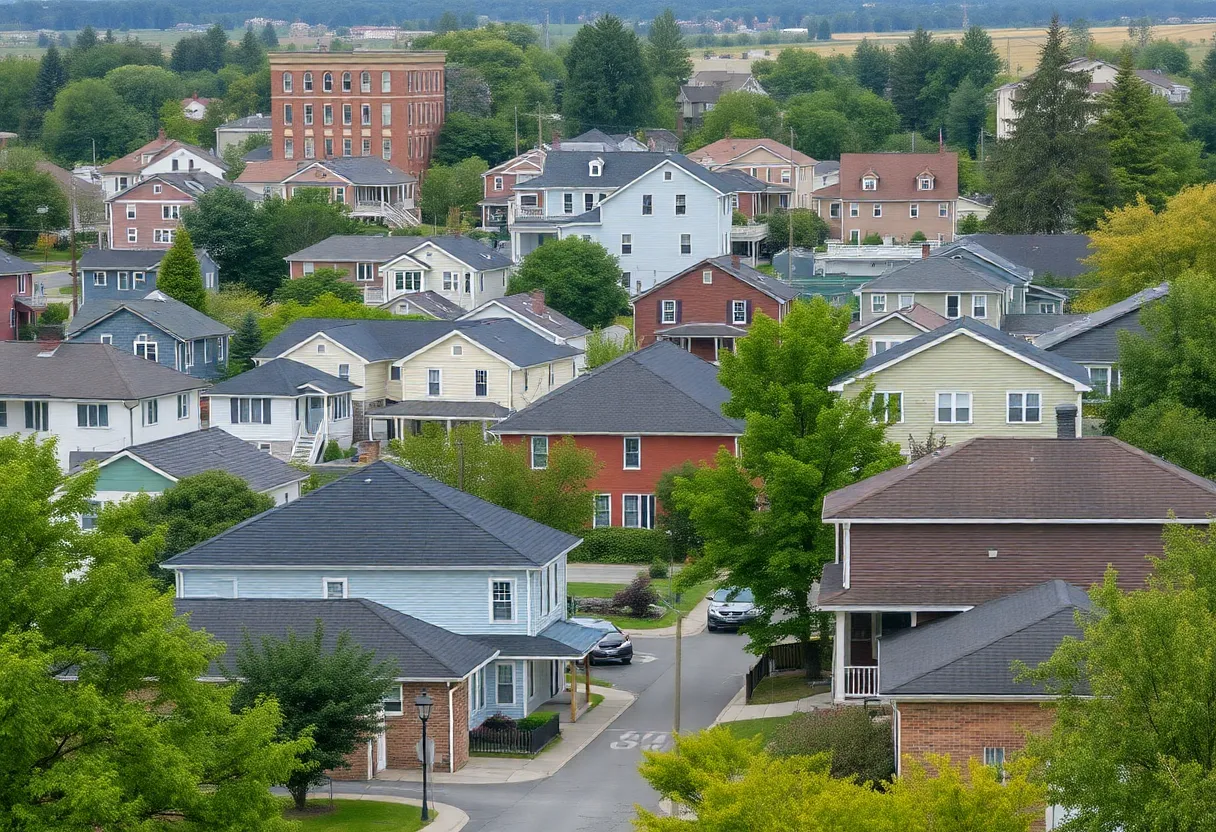News Summary
Massachusetts is in the midst of a housing crisis, needing 222,000 additional units by 2035 to combat rising home prices and homelessness. The median home price reached $615,000 in 2024, exacerbating affordability issues. Local regulations and high construction costs are significant barriers to developing new housing. Recent legislative initiatives aim to promote affordable housing, including the Affordable Homes Act allowing for the easier construction of Accessory Dwelling Units (ADUs), though some communities express concerns about potential restrictions.
Boston – Massachusetts faces a looming housing crisis as a recent assessment by Governor Maura Healey’s administration reveals that the state will need at least 222,000 additional housing units by 2035 to address ongoing affordability issues. The significant shortfall of homes has led to skyrocketing prices and a growing number of individuals experiencing homelessness.
As of 2024, the median price for a single-family home in Massachusetts soared to $615,000, an increase from $570,000 in 2023, according to data collected from the Warren Group. This persistent rise in home prices has fueled a homelessness crisis, with approximately 56,000 individuals experiencing homelessness in Massachusetts, up from 33,000 in 2019.
The rising cost of living is prompting many young professionals to leave the state, further worsening labor shortages. The high construction costs, influenced by elevated wages due to the state’s cost of living and stringent codes concerning energy, plumbing, and electrical work, are also hindering the development of new affordable housing units. The average cost to construct a residential unit in Massachusetts is about $334,280, which is significantly higher than $143,579 in Delaware, the state with the lowest construction costs.
Barriers to Housing Production
Local regulations and extensive permitting processes have been criticized as significant barriers to the production of affordable housing. Experts have noted that while regulations can be beneficial, their cumulative impact raises costs unnecessarily. The construction industry is facing challenges due to multiple layers of regulations, which not only slow down the process but also contribute to making affordable housing less attainable. The Unlocking Housing Production Commission, part of Healey’s administration, has recommended regulatory changes aimed at increasing housing development, including workforce development and more flexible zoning updates.
Recommended Regulatory Changes
Among the proposed recommendations are reconsidering fire safety requirements for multifamily buildings and limiting municipal authority to impose stricter septic systems than state standards. The Metropolitan Area Planning Council has emphasized the importance of regularly updating regulations to align with current needs and costs.
Additionally, the state has begun implementing new MEPA regulations designed to expedite approvals for housing projects by creating a category that allows certain developments to skip the Environmental Impact Report (EIR) process, thereby shortening the review time to around 30 days.
Legislative Initiatives
To further encourage housing production, the MBTA Communities Act mandates cities and towns located near MBTA service points to zone for multifamily housing. The Momentum Fund, introduced as part of last year’s housing bond law, provides low-interest and no-interest loans to developers focused on affordable housing projects.
In August 2024, the Affordable Homes Act was signed, which simplifies the construction of Accessory Dwelling Units (ADUs) by eliminating certain permit restrictions and allowing for rental options. This is seen as a viable solution, as ADUs can provide families with additional living space while simultaneously increasing property values. Housing Secretary Ed Augustus noted the potential for thousands of ADUs to be built over the next five years as part of the broader strategy to combat the housing crisis.
Community Concerns
Despite the positive outlook, some towns may still impose restrictions on the use of ADUs for short-term rentals, and homeowners must also navigate the potential for property tax increases associated with ADU construction. The growing need for affordable housing in Massachusetts is evident, and state officials are actively pursuing various strategies aimed at increasing availability and affordability for residents.
Deeper Dive: News & Info About This Topic
- Bowditch: Proposed Changes to MEPA Regulations
- Bloomberg: Massachusetts Needs 222,000 Housing Units
- Cape Cod Times: Massachusetts Housing Crisis
- Wikipedia: Housing in the United States
- Sentinel & Enterprise: Fixing Massachusetts Housing Crisis
- Encyclopedia Britannica: Housing Crisis

Author: STAFF HERE BOSTON WRITER
The BOSTON STAFF WRITER represents the experienced team at HEREBoston.com, your go-to source for actionable local news and information in Boston, Suffolk County, and beyond. Specializing in "news you can use," we cover essential topics like product reviews for personal and business needs, local business directories, politics, real estate trends, neighborhood insights, and state news affecting the area—with deep expertise drawn from years of dedicated reporting and strong community input, including local press releases and business updates. We deliver top reporting on high-value events such as Boston Marathon, Head of the Charles Regatta, and Boston Harborfest. Our coverage extends to key organizations like the Greater Boston Chamber of Commerce and Associated Industries of Massachusetts, plus leading businesses in finance, biotech, and insurance that power the local economy such as Fidelity Investments, Biogen, and Liberty Mutual Insurance. As part of the broader HERE network, we provide comprehensive, credible insights into Massachusetts's dynamic landscape.





